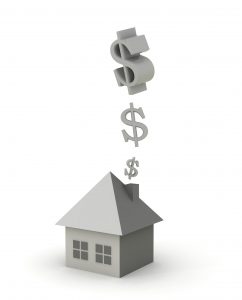
If you are currently in the process of replacing a furnace, or putting in the first furnace in a home, you might be wondering how to read efficiency ratings. We’re glad to help, and we can deliver any furnace service in Durham, NC and the surrounding areas you may need.
Furnace Efficiency Is Measured as AFUE
When you look on the cabinet of a furnace, you’ll find a percentage listed as AFUE on the nameplate. This is the measurement of the furnace’s efficiency. AFUE stands for Annual Fuel Utilization Efficiency, and the percentage represents how many units of fuel (out of a hundred) are converted into heating output. A furnace with 80% AFUE coverts 80 units out of 100 into heating power, and the remaining 20 units are lost to exhaust. AFUE, as the name indicates, is measured as the average furnace performance over a standard year of use.
What’s a Good AFUE Rating?
This is a bit tricky to answer because “it depends.” It depends on your house, budget, and heating use. We can give you an idea of the range to expect. Older furnaces usually have an AFUE of 70%, or sometimes lower. Today, mid-efficiency furnaces score much higher, often around 85%. For a furnace to earn the ENERGY STAR certificate from the US Department of Energy, it must have an AFUE of at least 90%.
High-efficiency furnaces can score AFUE of higher than 95% thanks to sealed combustion, variable-speed fans, and multi-stage burners. These furnaces cost more than mid-efficiency, but we strongly recommend one if you can afford it.
The Efficiency of Electric Furnaces
All the information above applies to natural gas furnaces. Electric furnaces have AFUE ratings of 100%, because all the electric power is turned into heat—there’s no exhaust, so no energy is lost. But this doesn’t mean an electric furnace is less expensive to run, because electricity costs more than natural gas. If your home is equipped with natural gas, we advise you to stay with a gas furnace.
Efficiency Isn’t a Savings Guarantee—You Need Professional Installation
As the electric furnace demonstrates, a high AFUE rating doesn’t automatically mean a furnace will save you money. Efficiency won’t mean much if the furnace isn’t right for the home and runs more than it should. This is one of the many reasons you must always have experienced and licensed HVAC technicians handle your furnace installation. Experts will perform a heat load calculation to determine how powerful a furnace is necessary to comfortably heat your home without energy waste. They can then match your house and your budget to the furnace that will perform to your needs.
Trust our licensed HVAC professionals for proper furnace installation. We have more than 30 years of history serving the region, and we’re bonded and insured for your protection.

